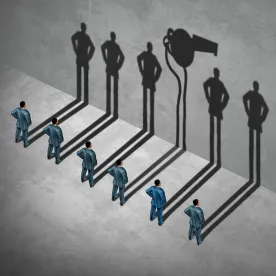On September 23, 2020 the U.S. Securities and Exchange Commission, in a 3-2 vote, approved new rules for its highly successful Dodd-Frank Act whistleblower program. All five Commissioners strongly endorsed the program. They all acknowledged that paying rewards to whistleblowers can play a key role in the detection of securities frauds. They confirmed that whistleblowers were responsible for over $2.5 billion in sanctions ordered to be paid by fraudsters and $750 million returned to harmed investors.
The six most important changes the Commission decided were:
1. Proposed Rule 21F-9(e) (the “TCR issue”).
The original proposal created a highly technical rule for filing complaints that could have resulted in thousands of whistleblowers being disqualified from obtaining a reward. The proposal was unforgiving: If a whistleblower contacted anyone from the Commission prior to filing a formal complaint (known as a “TCR”) that whistleblower would be automatically disqualified from obtaining a mandatory whistleblower reward.
The final rule rejected this draconian outcome. Whistleblowers still need to file TCR complaints to qualify for a reward. However, the new rule creates two exceptions that will mitigate the harmful nature of the original proposal. First, whistleblowers are given 30-days from an initial contact with the SEC to file the TCR. Second, that 30-day requirement is tolled until a whistleblower obtains actual or constructive knowledge of the TCR filing requirement. However, the thirty day time requirement can be triggered when a whistleblower hires an attorney to file a reward claim.
The final resolution of this issue was a win for whistleblowers.
2. Proposed Rule 21F-6(d) (Limiting Reward in Large Cases).
The proposed rule created a presumption that large whistleblower rewards would automatically be reduced to the smallest amount possible under law. This so-called “cap” was completely eliminated. The final rules contain no provision authorizing the reduction of rewards in large cases. The Commissioners debated whether or not such authority existed under current rules. But regardless of that debate, the new rules do not contain any such authorization.
Furthermore, the current rules also do not contain any explicit authority to reduce awards in large cases. Thus, although some on the Commission believe that they can reduce rewards based solely on the amount of an award, this position does not have any legal support either in the statute, the legislative history, or in the actual controlling regulations.
This Commission’s complete abandonment of its proposal to limit rewards in large cases was a major victory for whistleblowers. The Chamber of Commerce has pushed for these types of reductions, but the whistleblower advocates provided irrefutable evidence that reducing rewards would not serve the public interest. To its credit, all five SEC Commissioners carefully listened to the position of the whistleblower experts on this issue, and did not buckle to the lobbyists who advocated for these restrictions.
3. Proposed Rule 21F-6(c) (Increasing Rewards in Small Cases).
The Commission approved a pro-whistleblower rule applicable in small cases where sanctions obtained by the SEC are $5 million or less. In these cases the Commission created a presumption that rewards should be paid at the highest amount (i.e. 30% of sanctions obtained), barring the existence of negative factors that would justify a reduction. The Chairman of the Commission pointed out that the majority of whistleblower cases result in sanctions of $5 million or less, and thus numerous whistleblowers will benefit from this rule change.
4. Proposed Rule 21F-3(b)(4) (Related Action Cases).
The most detrimental anti-whistleblower rule approved by the Commission concerns the Dodd-Frank Act’s “related action” requirement. This requirement encourages whistleblowers to fully cooperate with sister federal and state law enforcement agencies and mandates that the Commission issue awards when a whsitleblower’s information is successfully used by these other agencies to hold fraudsters accountable. The “related action” law is triggered whenever the Commission issues a sanction against wrongdoer in the amount of $1 million more. Thereafter, if a sister federal agency or a state criminal agency also sanctions the wrongdoer based on the whistleblower’s original information, the Commission must pay a reward to the whistleblower as if the Commission itself had issued the sanction.
The proposed rule radically re-wrote this provision in the law. The new rule grants the SEC the discretion to decide whether a case pursued by a sister agency should be excluded as a related action, and therefore exempting the Commission from having to pay a related action reward. This new authority runs counter to the plain language of the Dodd-Frank Act and should be challenged in court if it is used to deny a whistleblower a mandatory related action award.
5. Proposed Rule 21F-2(d)(4) (Protection of Internal Whistleblowers).
Currently SEC rules prohibit regulated companies from retaliating against employees who raise securities concerns internally (i.e. to a compliance officer, Audit Committee, or corporate counsel, etc.). The Commission abolished this rule. The Commission based this rule change to the Supreme Court decision in Digital Reality v. Sommers. That case held that internal whistleblowing was not protected under the Dodd-Frank Act, and that in order to be protected whistleblowers must directly contact the SEC.
Whistleblower advocates argued that the Commission had the power to protect internal whistleblowers under the Sarbanes-Oxley Act (SOX). However, those arguments did not prevail and the current prohibition against retaliating against internal whistleblowers was cut from the current rule. Although a setback for whistleblowers, ultimately corporate compliance programs will be the primary victim of this rule change, as whistleblowers are clearly instructed to directly contact the SEC if they want protections or rewards under the Dodd-Frank Act.
6. Interpretive Guidance Defining “Analysts” Eligible for Rewards.
The Commission proposed “guidance” that would weaken its current rules defining qualified “analysts” eligible for rewards. This guidance remained essentially unchanged. As explained in a letter to the Commission signed by five Democratic Senators, the “proposal would permit the SEC to create an insurmountable hurdle for a whistleblower to establish original information based on ‘independent analysis.’” Despite these objections the Commission approved the “guidance.”
Viewed as a whole, whistleblowers avoided a disastrous outcome. Had all five of these proposals been approved, the SEC’s whistleblower reward and program would have been devastated. The two most far-reaching anti-whistleblowers proposals were rejected (i.e. the limits being placed on large awards and the TCR complaint rule). Moreover, all of the Commissioners clearly recognized that whistleblowers are “extremely successful” in alerting the Commission to fraud and protecting investors from illegal Wall Street crimes.




 />i
/>i

